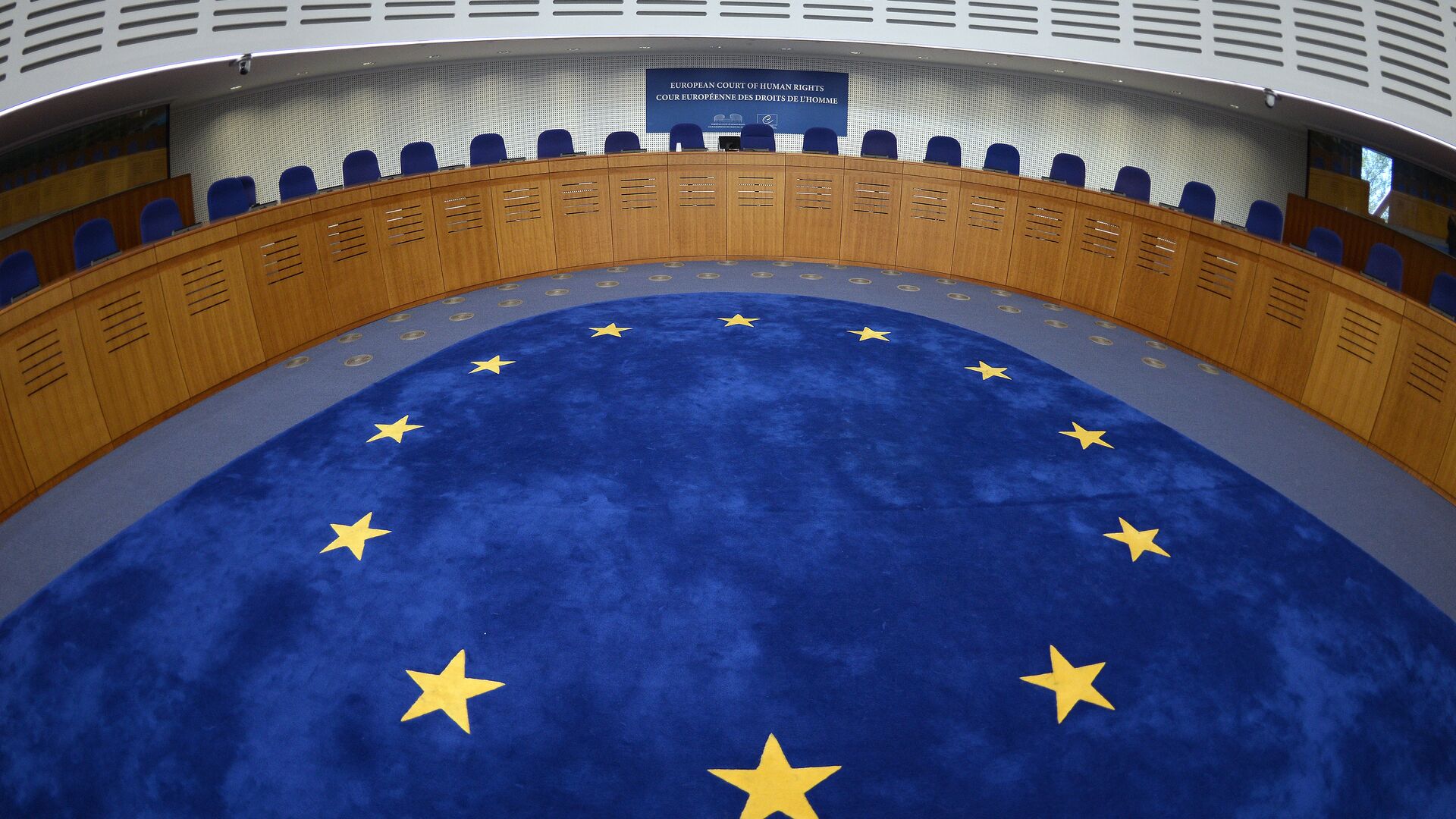https://sputnikglobe.com/20210921/kremlin-says-echr-claims-of-russias-responsibility-for-litvinenkos-death-are-unfounded-1089266038.html
Kremlin Says ECHR Claims of Russia's Responsibility for Litvinenko's Death Are 'Unfounded'
Kremlin Says ECHR Claims of Russia's Responsibility for Litvinenko's Death Are 'Unfounded'
Sputnik International
MOSCOW (Sputnik) - Kremlin spokesman Dmitry Peskov qualified as unfounded the European Court of Human Rights (ECHR)'s claims about Russia's responsibility for... 21.09.2021, Sputnik International
2021-09-21T10:21+0000
2021-09-21T10:21+0000
2021-09-21T12:45+0000
alexander litvinenko
european court of human rights (echr)
russia
https://cdn1.img.sputnikglobe.com/img/102407/68/1024076811_0:119:4832:2837_1920x0_80_0_0_aff583e8fba26fd64915e9e95ba9d96d.jpg
"The ECHR is unlikely to have authority or technological capabilities to have information on the matter. You know that there are still no results of this investigation available, so making such statements is at least unfounded. We are not ready to listen to such decisions," Peskov said at a briefing.ECHR Says Russia Responsible for Litvinenko DeathThe European Court of Human Rights recognized Russia responsible for the 2006 death of Alexander Litvinenko, an ex-security service officer, accusing the authorities of failing to conduct an effective investigation, and awarded 100,000 euros ($117,328) in compensation for moral damage to his widow."The Russian authorities failed to carry out an effective investigation themselves," the document read on.The ECHR ruled that Russia is obligated to pay 100,000 euros to widow Marina Litvinenko in compensation for moral damage and 22,500 euros in compensation for litigation costs.Litvinenko's CaseFormer Russian Federal Security Service (FSB) officer Alexander Litvinenko, who worked for the UK’s MI-6 after defecting to Great Britain in 2000, died in November 2006 in London from what doctors explained was poisoning with radioactive polonium-210. The UK claimed that "the only credible explanation" for Litvinenko's death was that Russia was behind it, as the former officer had met his former colleagues - Dmitry Kovtun and Andrei Lugovoi - to reportedly have tea in downtown London three weeks prior to his death. Thus, Scotland Yard considered Lugovoi to be the main suspect, and accused him of Litvinenko's murder. Lugovoi denied all charges, and has called the trial "a theatrical farce". Moscow refused to extradite him to London, and also repeatedly stated that the case was politicised and the investigation was not transparent. In 2018, the Russian Prosecutor General's Office stated that the British authorities had not provided any evidence in the Litvinenko case to Russia, and the materials were classified. Yuri Chaika, who at the time held the post of Prosecutor General of the Russian Federation, noted that the Ministry of Internal Affairs of Great Britain, a few months before Litvinenko's death, had known about the threat to his safety, but hadn't taken any measures to protect him.
https://sputnikglobe.com/20160923/russia-uk-iquiry-litvinenko-1045617284.html
russia
Sputnik International
feedback@sputniknews.com
+74956456601
MIA „Rosiya Segodnya“
2021
Sputnik International
feedback@sputniknews.com
+74956456601
MIA „Rosiya Segodnya“
News
en_EN
Sputnik International
feedback@sputniknews.com
+74956456601
MIA „Rosiya Segodnya“
Sputnik International
feedback@sputniknews.com
+74956456601
MIA „Rosiya Segodnya“
alexander litvinenko, european court of human rights (echr), russia
alexander litvinenko, european court of human rights (echr), russia
Kremlin Says ECHR Claims of Russia's Responsibility for Litvinenko's Death Are 'Unfounded'
10:21 GMT 21.09.2021 (Updated: 12:45 GMT 21.09.2021) MOSCOW (Sputnik) - Kremlin spokesman Dmitry Peskov qualified as unfounded the European Court of Human Rights (ECHR)'s claims about Russia's responsibility for the death of ex-security officer Alexander Litvinenko and emphasized that the Kremlin is not ready to listen to such decisions.
"The ECHR is unlikely to have authority or technological capabilities to have information on the matter. You know that there are still no results of this investigation available, so making such statements is at least unfounded. We are not ready to listen to such decisions," Peskov said at a briefing.
ECHR Says Russia Responsible for Litvinenko Death
The European Court of Human Rights recognized Russia responsible for the 2006 death of Alexander Litvinenko, an ex-security service officer, accusing the authorities of failing to conduct an effective investigation, and awarded 100,000 euros ($117,328) in compensation for moral damage to his widow.
"Having reviewed all evidence before him, the Chairman considered that there existed a strong probability that when poisoning Mr Litvinenko, Mr Lugovoy and Mr Kovtun were acting under the direction of the Russian security service ... The [Russian] Government failed to provide any other satisfactory and convincing explanation of the events," the court ruling read.
"The Russian authorities failed to carry out an effective investigation themselves," the document read on.
The ECHR ruled that Russia is obligated to pay 100,000 euros to widow Marina Litvinenko in compensation for moral damage and 22,500 euros in compensation for litigation costs.
Former Russian Federal Security Service (FSB) officer Alexander Litvinenko, who worked for the UK’s MI-6 after defecting to Great Britain in 2000, died in November 2006 in London from what doctors explained was poisoning with radioactive polonium-210.

23 September 2016, 07:05 GMT
The UK claimed that "the only credible explanation" for
Litvinenko's death was that Russia was behind it, as the former officer had met his former colleagues - Dmitry Kovtun and Andrei Lugovoi - to reportedly have tea in downtown London three weeks prior to his death.
Thus, Scotland Yard considered Lugovoi to be the main suspect, and accused him of Litvinenko's murder. Lugovoi denied all charges, and has called the trial "a theatrical farce". Moscow refused to extradite him to London, and also repeatedly stated that the
case was politicised and the investigation was not transparent.
In 2018, the Russian Prosecutor General's Office stated that the British authorities had not provided any evidence in the Litvinenko case to Russia, and the
materials were classified. Yuri Chaika, who at the time held the post of Prosecutor General of the Russian Federation, noted that the Ministry of Internal Affairs of Great Britain, a few months before Litvinenko's death, had known about the threat to his safety, but hadn't taken any measures to protect him.




